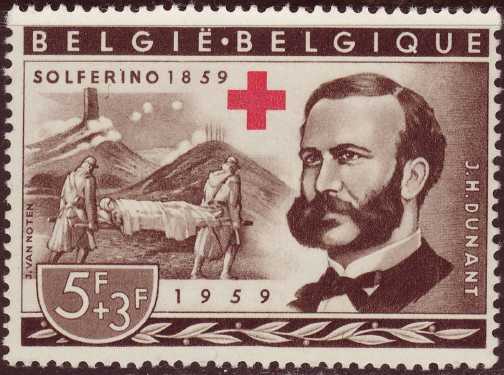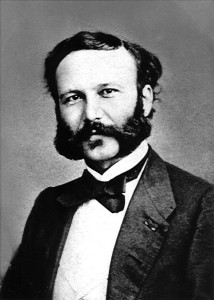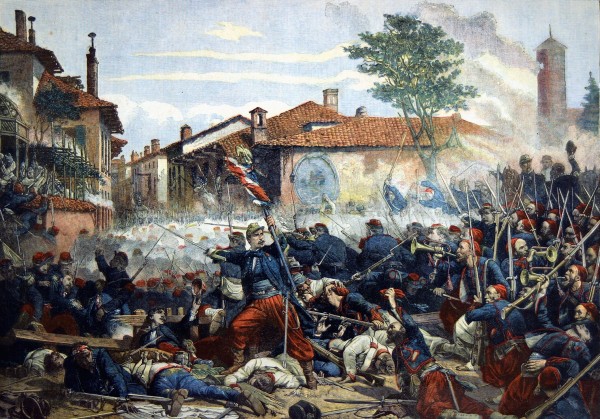 Torture, and the modern American use of it, has been thrust into the spotlight this week, leaving me curious about the history of international efforts to prevent it. How did those efforts begin and what is the current customary international law concerning torture?
Torture, and the modern American use of it, has been thrust into the spotlight this week, leaving me curious about the history of international efforts to prevent it. How did those efforts begin and what is the current customary international law concerning torture?
The Battle of Solferino in 1859 stands out as a major cornerstone in the historical development of modern laws dealing with the rights of wartime prisoners. On the plains of the Mantua district in Northern Italy on June 24th, 1859, bloody carnage in Solferino would spark the genesis of international attempts to limit the cruelty of war.
With over 300,000 soldiers fighting in the Solferino area, it was the largest battle in world history at the time. Napoleon III led the French, and was joined by the Sardinian Army under Victor Emanuel II, defeating the Austrian Army under Franz Joseph I. The monarchs personally directed their soldiers on the battlefield, something never to be repeated again in world history. The fighting was savage.
At the end of the one-day battle, 40,000 soldiers died or were left wounded on the battlefield. There was little medical help.
A Swiss businessman, Jean-Henri Dunant, arrived at the scene and was horrified by the scale of the suffering. For several days, Dunant helped treat the survivors.
 He went on to publish “A Memory of Solferino” and sent copies to political and military leaders throughout Europe in 1862. He advocated for national relief agencies and international treaties to protect wounded soldiers on the battlefield. Dunant became one of the founders of the International Committee for the Red Cross in 1863 and he helped organize the first Geneva Convention in 1864. Jean-Henri Dunant was awarded the first Nobel Peace Prize in 1901.
He went on to publish “A Memory of Solferino” and sent copies to political and military leaders throughout Europe in 1862. He advocated for national relief agencies and international treaties to protect wounded soldiers on the battlefield. Dunant became one of the founders of the International Committee for the Red Cross in 1863 and he helped organize the first Geneva Convention in 1864. Jean-Henri Dunant was awarded the first Nobel Peace Prize in 1901.
The Geneva Convention was negotiated again in 1906, 1929, and 1949. The wartime rights of prisoners became firmly established and expanded, including the right of prisoners to be free from torture. Furthermore, in 1977, the United Nations Convention Against Torture and Other Cruel, Inhuman or Degrading Treatment or Punishment (commonly known as the Convention Against Torture) was drafted, unequivocally banning torture. As of this year, 156 nations are parties to the Convention Against Torture. The US signed the treaty in 1988, and the Senate ratified it in 1994.
The UN Convention Against Torture defines torture as: “Any act by which severe pain or suffering, whether physical or mental, is intentionally inflicted on a person for such purposes as obtaining from him or a third person, information or a confession….” Article 2 prohibits torture, and this prohibition is absolute: “No exceptional circumstances whatsoever” may be invoked to justify torture, including war, threat of war, internal political instability, terrorist acts, violent crime…. Torture cannot be justified as a means to protect public safety… The prohibition on torture applies to all territories under a party’s effective control, and protects all people under its control, regardless of citizenship or how that control is exercised.
The Solferino region is famous for its wines, olive oil, truffles and its bucolic landscape. However, I struggle to imagine the horrible scene Jean-Henri Dunant stumbled upon June 24, 1859. His response was heroic, and started international efforts to protect the victims of war. It took over a century for a comprehensive international treaty banning torture to be written and agreed upon. Will it be another century before all signatory parties obey the terms of the 1977 UN Convention Against Torture?

